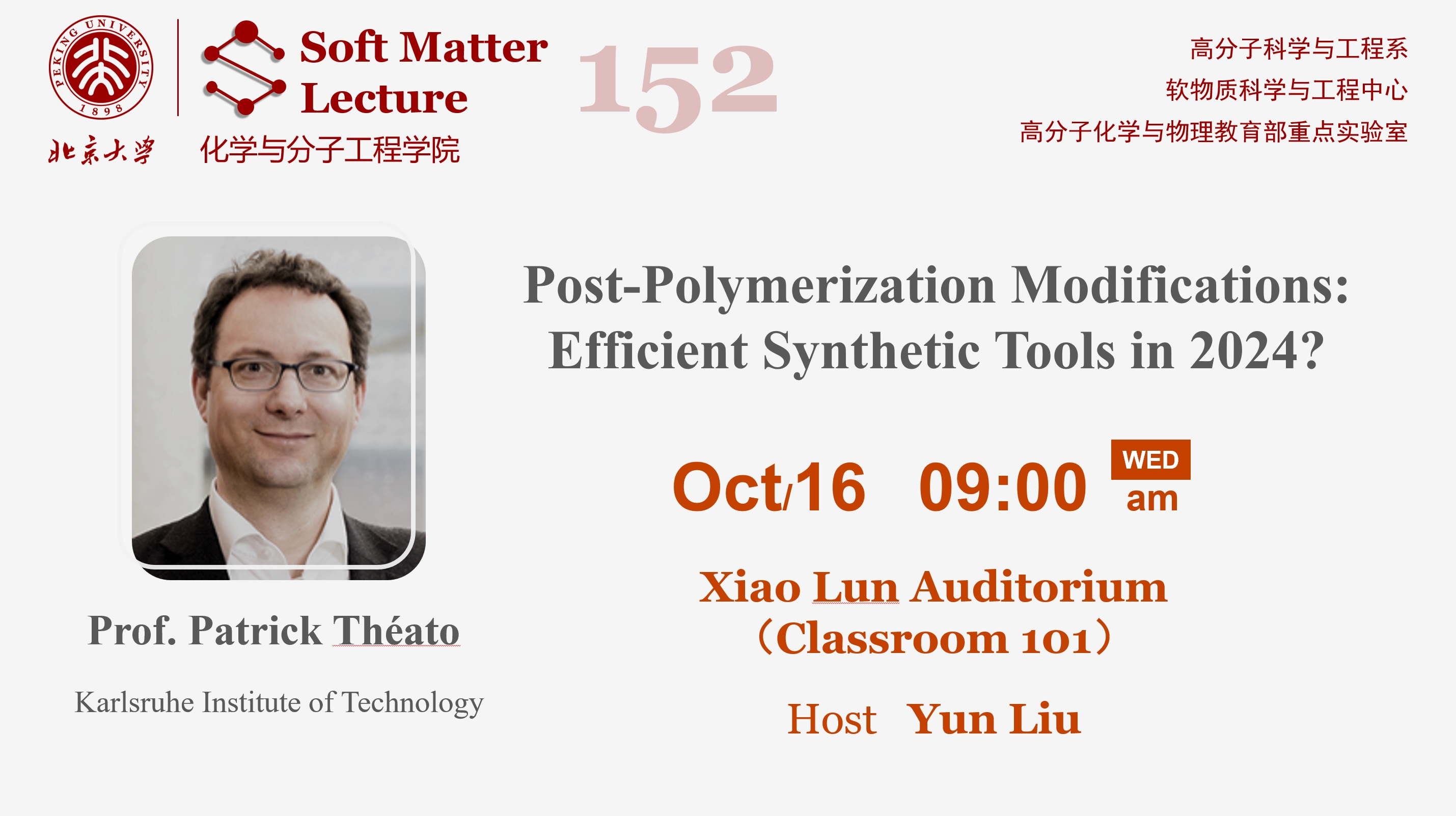
Abstract
Post-polymerization modifications (PPMs) have been a valuable synthetic route for the preparation of functional polymers since the early beginnings of polymer science. Over the decades, new and highly efficient routes have been described, taking advantage of reactive monomers. In conjunction with the advent of reversible-deactivation radical polymerizations (RDRPs), PPMs have proven to be extremely powerful in the synthesis of libraries of functional polymers to study structure-property relationships. In this presentation, we will look back to past routes and forward to new routes that render PPMs as continuously valuable synthetic tools in polymer science as an interdisciplinary science. Functional polymers are based on certain chemical functional groups. As such, the inspiration from organic chemistry has always been fruitful to the development of new synthetic routes to functional polymers via PPMs. Examples that showcase the introduction of highly functional groups as well as the complete removal of functional groups will be discussed.
